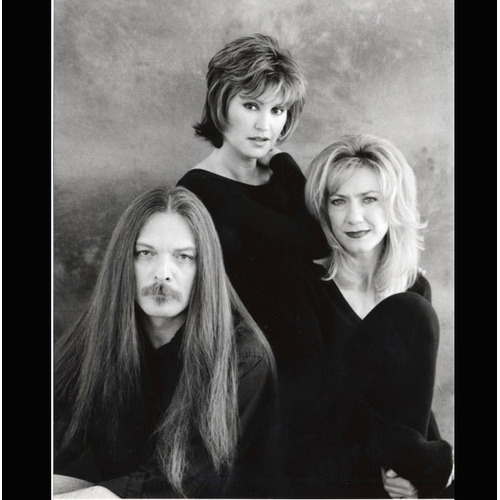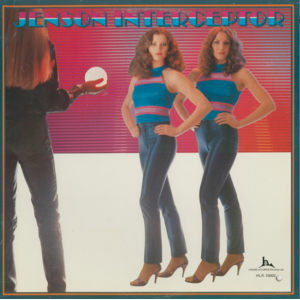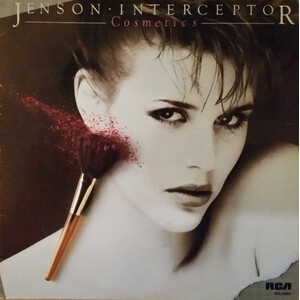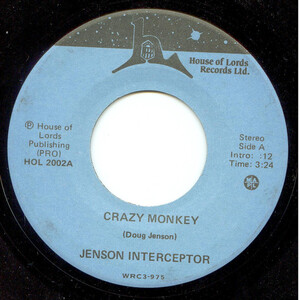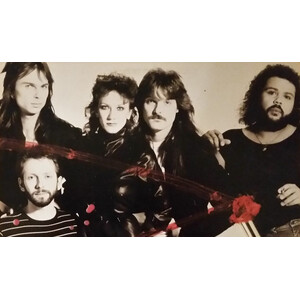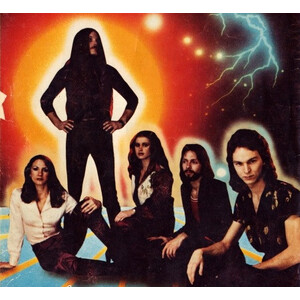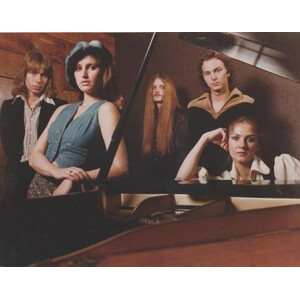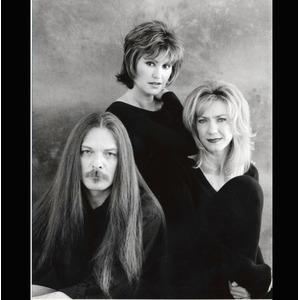Jenson Interceptor
Websites:
https://www.donstunes.com/doug-jenson/
Origin:
Edmonton, Alberta, 🇨🇦
Biography:
During the late 1970s, the Edmonton music scene was alive and well with a barrage of local talent. Among the premier b circuit groups was Jenson Interceptor. The brother/sister duo of Doug and Kennedy Jenson grew up in a musical family in Coaldale, Alberta. Both took to the piano, and Doug also picked up the guitar at an early age. Doug first started a band fresh out of high school with his future wife Charlotte Weibe in her mother’s basement in ’76. Weibe would also go on to become one of the key songwriters in the band.
Over the next couple of years they cemented the lineup with keyboardist Ed Johnson, Albert Blaine on bass and drummer John Fynn, and changed the band’s name from Dickens to Jenson Interceptor, which also happened to be a British sports car. But in mid ’79 they’d become intimate with Alberta’s B circuit, and Kennedy had replaced Johnson on keyboards. They appeared on several local radio and tv programs for unsigned acts and were noticed by Ross McKenzie, owner of Edmonton’s independent House Of Lords Records.
They recorded their self-titled debut at the now-defunct Soundman Recorders, and released it in the summer of 1980. Three producers shared duties, with Gerry Dere, Jack Richardson and Wes Dakus all following the same formula of a predominantly keyboards sound complimented by woodwinds and tight, but light pop guitar work. The Edmonton Symphony Orchestra also appeared on the record for good measure.
Backed by the first single “Crazy Monkey” and the flip side, “Tiny Thing” – one of seven tracks written by Weibe, the album quickly caught on with local radio. More appearances on TV led to their first regional tour, and the melodic “Heavenly Angels” was released as their second single. While on the road in early ’81, the group’s third single was released in “Cats In The Window” backed with “Fine Man,” which extended their tour to a coast to coast run with Holly Woods & Toronto. “Do You Want Your Love To Be,” the fourth single, further proved the group’s tight cohesion, while still maintaining a pop sensibility about their music.
Despite selling 30,000 copies nationwide however, there were financial problems with the record label, which forced the band to change their name to Cosmetics. The next couple of years were spent in lounges and clubs in western and central Canada doing covers of the day’s chart hits. At this point Kennedy was growing weary of the rock scene and left the band to work with an Edmonton cable company, hosting a variety of programs and dabbling in her other love, jazz – releasing a string of CDs throughout the 90s.
After the label’s demise and Ed Johnson returned to replace Kennedy and Darrel Mayes had replaced Flynn on drums, the group’s fortunes changed when they were signed to RCA. They changed their name back to Jenson Interceptor and released their second album, called ironically enough, COSMETICS. “Pull Me” was released as the first single with “Telephone Love Affair” the flip side, but problems with their new label squashed the five-record deal and Jenson Interceptor was again put on the shelf.
They continued to tour despite their setbacks until outside interests caused their breakup a few years later. In 1988 Doug and Weibe lent a hand to fellow Albertans Gary Lee and Showdown, doing backup vocals on the NEW FRONTIERS IN COUNTRY MUSIC album. By the late ’90s they were divorced, but hooked up again in 2003 to tour with Holly Woods & Toronto‘s cross-Canada tour in 2003, although they went their separate ways again after the tour’s end. Doug’s new project, The Feel Kings, was formed in 2005 and has released a pair of albums.
